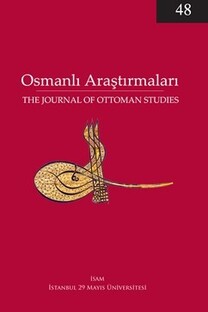Şehrengiz, Urban Rituals and Deviant Sufi Mysticism in Ottoman
B. Deniz Çalış-Kural’s Şehrengiz, Urban Rituals and Deviant Sufi Mysticism in Ottoman Istanbul is the first book-length study in English to focus on the şehrengiz, sometimes translated as “city thriller”, a genre of Ottoman poetry that flourished between the early 16th and the early 18th centuries CE and that presents poetic descriptions partly of Ottoman cities such as Istanbul, Edirne, and Bursa, but primarily of various beautiful shop boys who live and work in those cities. The book promises to show how “şehrengiz poems were talking about urban rituals performed in city spaces … as a subtext for secret gatherings” (p. ix), specifically secret gatherings by members of the heterodox Melami-Bayrami Sufi sect, which was influenced by the thought of the philosopher and mystic Ibn ‘Arabi (1165– 1240). From this basic premise, the author claims that, through şehrengiz poetry, “marginal groups … emphasized the autonomy of the individual self and aimed at reconciling orthodox and heterodox worlds and thus their spaces and inhabitants in ideal spaces of Sufi imagination and real spaces of the city” (ibid.). This is a bold and provocative claim, but unfortunately it is one that the book as a whole fails to adequately support, as will be outlined below.
Anahtar Kelimeler:
B. Deniz Çalış-Kural, Şehrengiz, Urban Rituals
___
- B. Deniz Çalış-Kural, Şehrengiz, Urban Rituals and Deviant Sufi Mysticism in Ottoman Istanbul, Farnham, Surrey: Ashgate, 2014, xiii + 276 pp., ISBN 978-147-2427-09-0.
- ISSN: 0255-0636
- Yayın Aralığı: Yılda 3 Sayı
- Başlangıç: 1980
- Yayıncı: TDV İslâm Araştırmaları Merkezi
Sayıdaki Diğer Makaleler
Bent Holm, The Taming of the Turk: Ottomans on the Danish Stage 1596-1896
Cem Behar, Bir mahallenin doğumu ve ölümü (1494-2008): Osmanlı İstanbulu'nda Kasap İlyas Mahallesi
Zafer Toprak, Türkiye'de Kadın Özgürlüğü ve Feminizm (1908-1935)
Bir Mahallenin Doğumu ve Ölümü (1494-2008): Osmanlı İstanbulu’nda Kasap İlyas Mahallesi
Guy Burak, The Second Formation of Islamic Law, The Hanafi School in the Early Modern Ottoman Empire
Osmanlı Kartografya Kaynaklarında Dobruca
Rusûhî’nin Kuş Diliyle Bir Gazeli ve Yûsuf Sinânüddîn ile Münîrî’nin Şaire Reddiyesi
Modern Islam in Translation: Reformist Aspirations and the Qur'an,
Vakıf Belgeleri Işığında Umur Bey ve Lala Şahin Paşa’nın Menşei ve Osmanlılar İle İttifakı’na Dair
